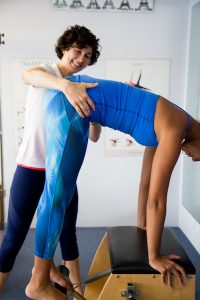Setting Realistic New Year’s Resolutions
 New year’s resolutions… We’ve all been there and done that!
New year’s resolutions… We’ve all been there and done that!
I want to lose weight. I want to eat better. I want to do park run every Saturday. I want to take up yoga. I want to return to playing soccer.
Did you know 80% of people have given up on their resolution/s by February? By the end of 2018 only 8% will succeed in achieving their new year’s resolutions.
“Setting goals is the first step in making the invisible into the visible” Tony Robbins.
Goal setting is important when setting resolutions and the best goals are ‘SMART’.
So, what is a SMART goal?
 S = Specific
S = Specific
Outline in as much detail as possible what your goal is. Ask yourself the following questions: What do you want to achieve? When do you want to achieve it? How will you achieve it? Who will help you achieve it?
M = Measurable
How will you measure your success in your goal? This can be done in a number of ways, but needs to be relevant to you and your goal: How many kilometres do you want to run? How much weight do you want to lose? How fast do you want to run 5km?
A = Achievable
Is your goal achievable? Consider how you will achieve it? Do you need to consider time and financial constraints? Do you have an old injury that is bothering you and might limit your success?
R = Realistic
Have you been realistic in what you can achieve and how you will achieve it? Do you love chocolate way too much to give it up completely? Are you really going to have the time to exercise every day? Make sure you’re not setting yourself up for failure!
T = Time based
Set a time frame that you would like to complete your goal within. Remember it needs to be achievable and realistic.
So, how can physiotherapists help?
As physiotherapists we can support you in achieving your new year’s resolutions. We are movement and exercise specialists and can help you by:
- Assisting you in setting SMART goals
- Providing you with a detailed physical assessment prior to starting an exercise program
- Planning a tailored exercise program for you including stretching, Pilates, gym and running programs
- Suggesting injury prevention and recovery strategies
- Showing you correct form and how to exercise with good technique and safely
- Communicating with your support team, such as your coach and/or doctor
- Recommending appropriate footwear, braces and supports
And if things go awry, we can help you tackle any injuries or aches and pains that you get so that you’re able to get back on track as soon as possible. No matter how slow you go, you’re still making more progress than if you were doing nothing!
This post was written by Lucy Beumer, Physiotherapist and Clinical Pilates Instructor at Stafford Physiotherapy Centre.
